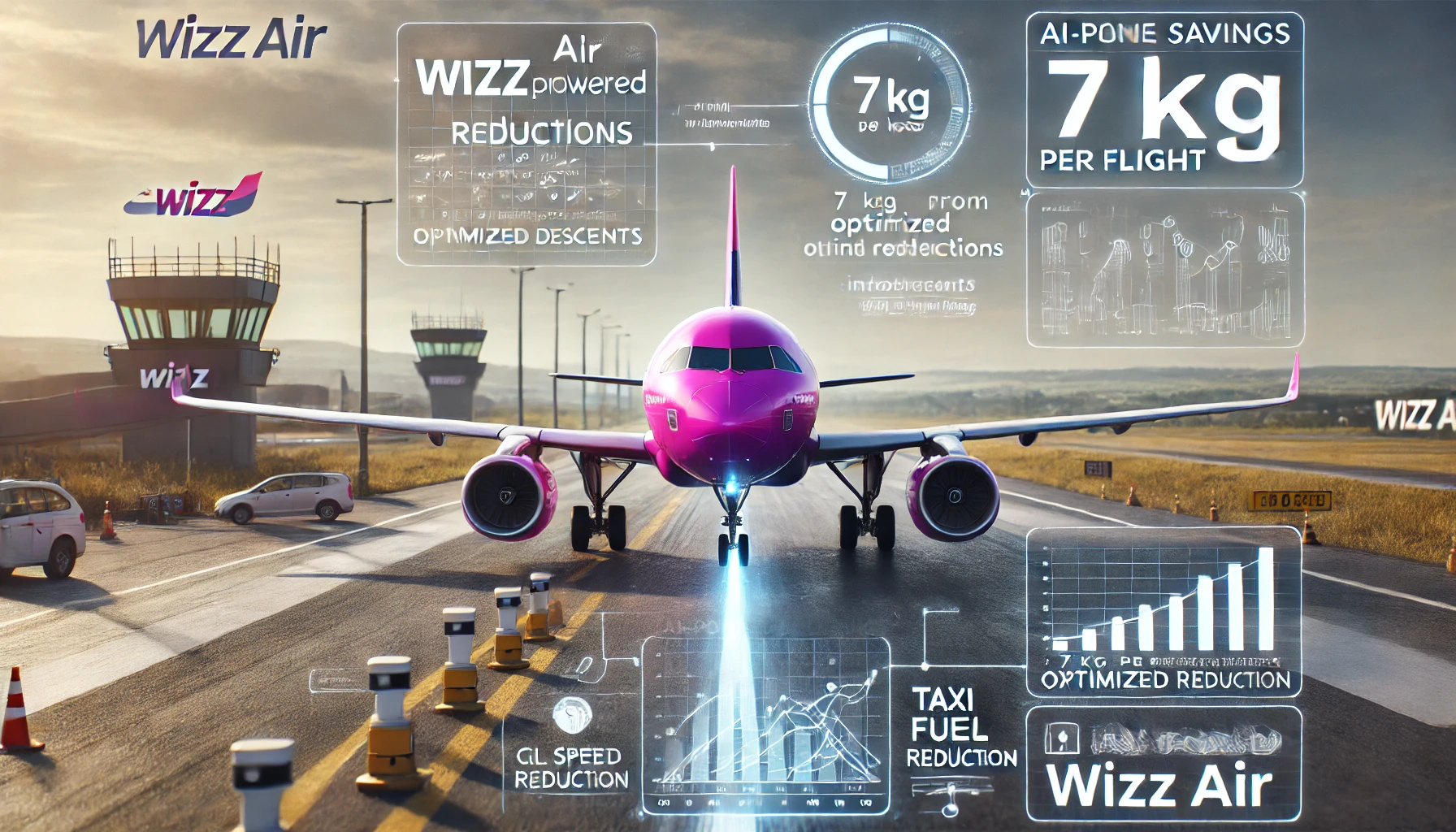Airline Achieves 7 kg Fuel Saving per Flight with AI
A I • Jul 30,2024

A European low-cost airline facing data limitations and inaccurate fuel planning implemented AI-powered solutions. This resulted in a 7 kg per flight fuel reduction through optimized descents, plus additional savings from climb speed adjustments and taxi fuel reduction.
Client:
Wizz Air, a European low-cost airline experiencing rapid growth, boasts 170 Airbus A320 and A321 aircraft. It offers very low fares and superior service, attracting a loyal customer base—over 27.1 million passengers flew with Wizz Air in the 2022 fiscal year.
Problem Statement:
● Limited data analysis: The previous system couldn’t handle the vast amount of data generated by modern aircraft. This meant they couldn’t gain insights into fuel burn or identify areas for improvement.
● Time-consuming processes: Manual calculations were slow and inefficient, hindering Wizz Air’s ability to move to a monthly performance evaluation model.
● Inaccurate planning: Limited data led to inaccurate fuel planning, resulting in overburns and discrepancies between planned and actual fuel usage.
Results:
☑️ 7 kg fuel saving per flight through accurate descent optimization
☑️ 400,000 tonnes CO2 emissions reduction annually
☑️ 44 fuel-saving initiatives tracked across flight phases, fuel policies, and planning
☑️ 5 kg fuel saving per flight by implementing a 3% contingency fuel policy
☑️ 5-6 kg fuel saving per climb by optimizing climb speed
☑️ 25% reduced planned taxi fuel (around 4 kg per flight)
AI Solution:
Wizz Air implemented two AI-powered solutions to address these challenges:
StorkJet’s AdvancedAPM: This platform provides accurate and up-to-date aircraft performance data, enabling better fuel planning and reducing overburns. Wizz Air uses AdvancedAPM to:
● Calculate accurate idle factors for descent optimization: This has led to an average fuel saving of 7 kg per flight.
● Monitor aircraft performance deterioration: This helps Wizz Air identify issues that could lead to increased fuel consumption.
● Reduce discretionary fuel use: Pilots are more confident in the planned fuel, so they are less likely to use extra fuel unnecessarily.
Wizz Air’s FuelPro platform: This platform allows Wizz Air to monitor compliance with various fuel-saving initiatives, identify new opportunities for optimization, and set achievable targets. Wizz Air uses FuelPro to:
● Track 44 different fuel-saving initiatives: This includes initiatives related to flight planning, ground operations, departure, cruise, and descent.
● Create customized dashboards and reports: This allows Wizz Air to track progress and identify areas for improvement.
● Set targets based on aircraft type, departure/arrival airport, and time of year: This ensures that targets are realistic and achievable.
Wizz Air has achieved significant fuel savings and emissions reductions thanks to its AI-powered solutions.
Reference:
Previos Article AI Visibility Slashes Pharma Delays 15%
Next Article Digital Twin for Effective Policy Communication